Abigail Chabitnoy
If You’re Going to Look Like a Wolf They Have to Love You More Than They Fear You.
How would you tell your own creation myth? Who — or what — would be in it?
We’re pleased to offer Abigail Chabitnoy’s poem, and invite you to sign up here for the latest from Poetry Unbound.
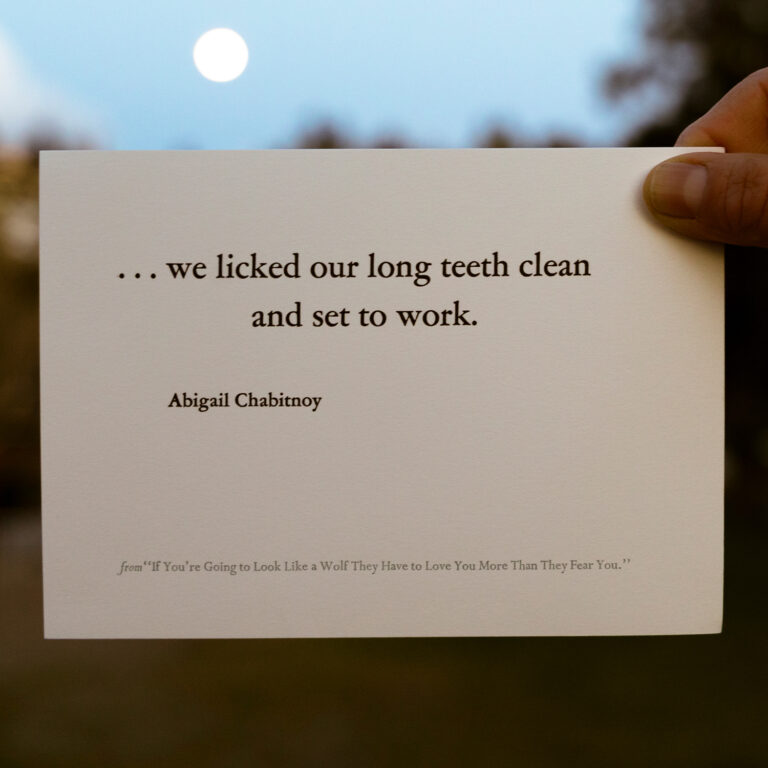
Letterpress print by Myrna Keliher. Photography by Lucero Torres. © All Rights Reserved.
Guest
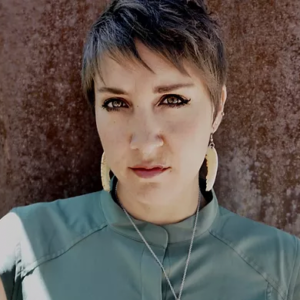
Abigail Chabitnoy is the author of How to Dress a Fish (Wesleyan 2019), winner of the 2020 Colorado Book Award for Poetry and shortlisted in the international category of the 2020 Griffin Prize for Poetry. Most recently, she was the recipient of the Witter Bynner Funded Native Poet Residency at Elsewhere Studios in Paonia, CO, and is a mentor for the Institute of American Indian Arts MFA in Creative Writing. She is a Koniag descendant and member of the Tangirnaq Native Village in Kodiak. Her upcoming collection, In the Current Where Drowning Is Beautiful, will be out in Fall 2022.
Transcript
Transcription by Heather Wang
Pádraig Ó Tuama: My name is Pádraig Ó Tuama, and for as long as I’ve been conscious, I’ve had recurring dreams about caves and underground places. Normally, they’re pretty frightening, but the older I’ve gotten the less frightening and the more curious those spaces are. When I was a child I mentioned it once to my older brother, and he said, Oh, I’ve got that dream, too. And we were both amazed that somehow we shared a dream — a dream that was incomprehensible, but that nonetheless told us some truth about something that was part of our brotherhood.
[music: “Praise the Rain” by Gautam Srikishan]
“If You’re Going to Look Like a Wolf They Have to Love You More Than They Fear You.” by Abigail Chabitnoy:
“The first deer had large teeth and no horns and
were not afraid.
“The first deer did not have enough fear
for the men who needed them
to survive.
“A woman decided to let the men eat
a grandmother decided her deer shall have horns
and be afraid
someone’s mother decided the men shall eat
and shall be feared.
*
“A man thought wolves should be used
to cull the herd.
“And we who had been catching water
dripping through stone
in the homes we dug
out of the earth
we licked our long teeth clean
and set to work.”
[music: “Into the Earth” by Gautam Srikishan]
I love this poem, and I find it absolutely bewildering. And I have grown over years to love bewildering poems, partly because it feels like you’re set astray, or you’re wandering through a poem that you don’t understand, and also because of the w-i-l-d in the middle of “bewildering.” It feels like language here is wild and unpredictable, and you just hope that you’ll get out alive. And bewildering poems make me feel utterly transfixed by what I’m seeing.
When I read this poem of Abigail Chabitnoy’s first, I couldn’t stop thinking about it — all of the details in it — the deer, the women, the men, the wolves, the licking the long teeth, and the fear. It felt a little bit like some kind of creation narrative, one that I wasn’t familiar with and one that I was feeling lost in, deliberately. And I think that might be part of the point.
[music: “Into the Earth” by Gautam Srikishan]
Telling a story is a beautiful thing, but a complicated thing, because stories can start in all kinds of places. Sometimes with groups, I’ve said to them, If right now you were to tell the story of your life, what would the first sentence be? And people write something out and share it. And then to say, Well, if right now you were to tell the story of your country, what would the first sentence be? And then people might share something and there’s a bit of argument in a room. And then, sometimes with groups I’ve said, If right now you were to tell the story of the world, what would your first sentence be? And then all kinds of wildness emerges. And this poem, I think, is taking mythologies and trying to create a shape for an imagination of the world — not a pretty world, not an easy world; a world where there’s all kind of dynamics of survival and fear and tameness, and questions to do with age, and questions to do with what people know and who has power.
And in this poem, the animals are tame, initially. They haven’t learned fear. And there’s men and questions of survival. Then there’s this grandmother, who gives the deer horns and fear. And there’s a mother, deciding that the deer should be eaten, and then someone thinking that the wolves should be used for culling. Who are all these people, and how do they know each other? Do they like each other? Are they at war? Are they in some kind of conflict with each other? None of this is made clear, and again, that’s the point. It’s kind of like being in a dream of the start of the world and just having little flashes of truth.
Just putting all of those in a sequence the way Abigail Chabitnoy does opens up a dream about the origins of things, but always, too, a dream about the origins of things is a dream about the way things are.
Abigail Chabitnoy is a member of Tangirnaq Native Village in Alaska. And she said that a few things influenced this poem, one of which was reading feminist texts, and also reading Alutiiq lore from Alaska, as well as a book titled Of Wolves and Men. And so when you return to the poem and look at all the dynamics that are happening there — regarding animal life, regarding lore, regarding humanity, regarding tensions or harmony and survival — you can suddenly hear how this dream, perhaps, about a world origin story that isn’t sequential but somehow is communicating truth, this dream is deeply in communication with the world that we inhabit now.
[music: “Angel Tooth” by Blue Dot Sessions]
The creation poems that I’m more familiar with are ones about six days followed by a day of rest, and then poems about earth and water and woman and man and God and animals and a garden, and agriculture and trees and good and evil and knowledge, as well as the idea of a garden called Eden and a departure from that garden. And this poem of Abigail Chabitnoy talks about animals and teeth and being unafraid, and then learning how to fear, and men and women and grandmothers, and eating and wolves and work.
And then there’s the title: “If You’re Going to Look Like a Wolf They Have to Love You More Than They Fear You.” This title, interestingly, brings the word “love” into all of this. And so in this populated imaginary, what we have is an origin myth that is telling the truth about today. Abigail Chabitnoy said that one of the things she wanted to do was to make this poem a conversation with what was happening in the world, as well as the things that she was reading, and to have the poem in conversation with the various crises that she was seeing in her newsfeeds, and to inhabit a sense of hope. And that, you particularly see, toward the end of the poem:
“And we who had been catching water
dripping through stone
in the homes we dug
out of the earth
we licked our long teeth clean
and set to work.”
That is a fascinating way to end. And in the “we” what I hear is the narration of a we who know how to survive — where to find water and dig homes, and what it means to work. And there’s a way in which this poem as it finishes, in the midst of the impenetrability of the sequence and all of the things that are being seen, this poem finishes on a note of group and hope and collaboration and survival.
And who is this group? I tend to think that it’s the narration from a group of people, but I’m so aware that the image of licking their long teeth clean could also be that somehow what we’re hearing in this last part of the poem is the wolves narrating their own story, the wolves digging their home in the earth, the wolves finding water where it drips through rocks. We don’t know, and that’s the brilliance of this poem, is that so many things are possible all at once.
[music: “Into the Earth” by Gautam Srikishan]
“If You’re Going to Look Like a Wolf They Have to Love You More Than They Fear You.” by Abigail Chabitnoy:
“The first deer had large teeth and no horns and
were not afraid.
“The first deer did not have enough fear
for the men who needed them
to survive.
“A woman decided to let the men eat
a grandmother decided her deer shall have horns
and be afraid
someone’s mother decided the men shall eat
and shall be feared.
*
“A man thought wolves should be used
to cull the herd.
“And we who had been catching water
dripping through stone
in the homes we dug
out of the earth
we licked our long teeth clean
and set to work.”
[music: “Praise the Rain” by Gautam Srikishan]
Chris Heagle: Thank you to Abigail Chabitnoy, who gave us permission to use her poem “If You’re Going to Look Like a Wolf They Have to Love You More Than They Fear You,” from the book In the Current Where Drowning Is Beautiful. Read the poem on our website, at onbeing.org.
[music: “Praise the Rain” by Gautam Srikishan]
Poetry Unbound is: Gautam Srikishan, Erin Colasacco, Eddie Gonzalez, Lilian Vo, Lucas Johnson, Kayla Edwards, and me, Chris Heagle.
Our music is composed and provided by Gautam Srikishan and Blue Dot Sessions.
This podcast is produced by On Being Studios, which is located on Dakota land. You may enjoy our other podcasts: On Being with Krista Tippett, Becoming Wise, and This Movie Changed Me. Find those wherever you’d like to listen, or visit us at onbeing.org to find out more.
Books & Music
Recommended Reading
The On Being Project is an affiliate partner of Bookshop.org and Amazon.com. Any earnings we receive through these affiliate partnerships go into directly supporting The On Being Project.






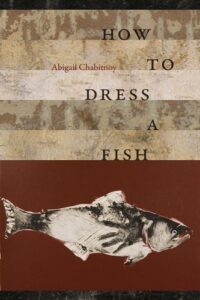

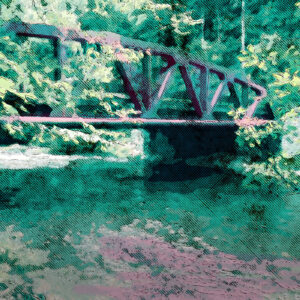
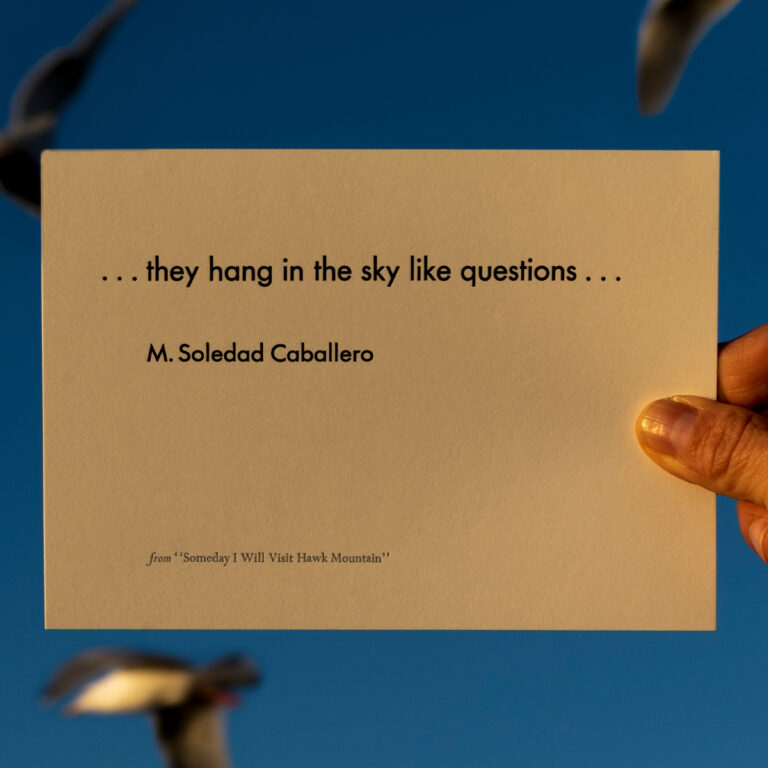
Reflections